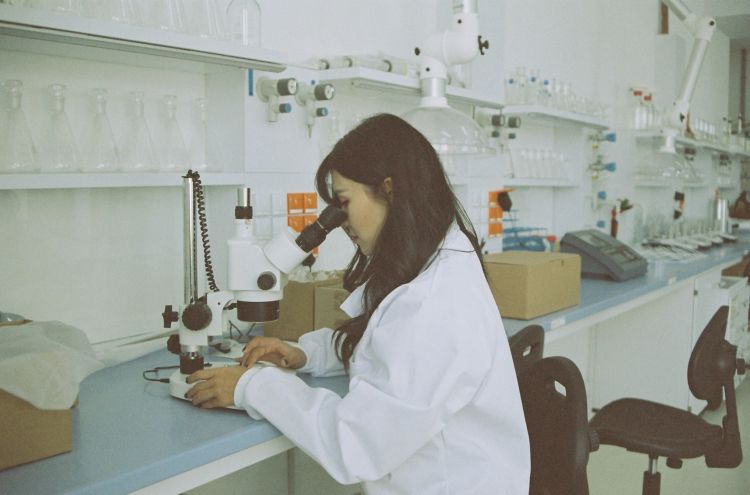PONIX AWARDED $5 MILLION USDA GRANTTO BREAK “GROUND” ON CLIMATE-SMART AGRICULTURE IN GEORGIA
Through USDA’s Partnerships for Climate-Smart Commodities Program, the Initiative is Recruiting 24 Minority and Underserved Georgia Farmers to Adopt Hydroponic Farming
ATLANTA (April 22, 2024) – The Coalition of Food Security (CFS), led by
minority-owned AgTech start-up, Ponix, is implementing a $5 million United States
Department of Agriculture (USDA) grant, as part of the Partnerships for Climate-Smart
Commodities program, which helps measure and promote climate-smart farming
practices. The program will design and launch an inclusive marketplace for sustainable
vegetable producers, empowering minority and underserved communities to sell both
their produce and carbon credits to corporate partners.
CFS is researching which farming method produces less harm to the environment – a
tech-enabled farm that grows lettuce with Ponix’s proprietary indoor hydroponic vertical
farming methods or a conventional farm that employs outdoor farming practices.
If successful in emitting less greenhouse gas emissions than its conventional
counterpart, CFS’s tech-enabled farm would allow a new carbon credit program to
develop where farmers, major distributors and retailers, and individual consumers would
be able to earn, buy and sell carbon credits.
“We’re passionate about the benefits of hydroponic farming,” said Ponix CEO, Michael
Choi, who has incubated tech-enabled solutions for public and private sectors
throughout his 15 year career. “It’s hyper local and yields a more nutritious product that
doesn’t require pesticides, recirculates water and conserves land.” he said.
Last month, CFS established Ponix’s hydroponic farm within a 300 square-foot footprint
in a facility in Decatur, which is equivalent to one acre of an outdoor conventional farm.
Its first harvest is slated for mid-May. The Ponix hydroponic farm will grow just under a
ton of lettuce per month. Both the hydroponic and conventional farms are growing red
fire lettuce.
“With current conventional farming-related emissions estimated to account for 24% of
total greenhouse gas emissions, the success of the CFS pilot presents a major
opportunity for the future of the agricultural industry by creating a blueprint on how to
not only mitigate the devastating impact of climate change, but also reduce food
insecurity and racial inequities,” said Choi.
Studies show that nearly 25% of Atlantans live in food deserts – areas that have low
access to healthy, affordable food. Moreover, they are located largely inside minority,
underserved communities, who, without easy access to fresh, healthy food, rely on
inflammatory, unhealthy fast food.
CFS’s diverse coalition of multidisciplinary and minority-focused partners includes
Ponix; the PROPEL Center, the first innovation hub built for the future of HBCUs
powered by Apple and Southern Company; Slater Infrastructure Group, a woman- and minority-owned professional services firm that specializes in water, transportation,
environmental and energy services; GTC 360° Advisors, a business strategy,
government contracting and carbon credit consulting firm; FoodChain, an online
marketplace, which connects sustainable food producers with wholesale buyers; UDC,
an HBCU in Washington, DC; and Georgia Bio, a non-profit that is empowering the
next generation through biotech.
Through these partners, CFS is recruiting and educating 24 minority-owned
landowners, underserved farmers and HBCU students on how to use and adopt Ponix’s
AgTech hardware and software solutions. Additionally, CFS is providing internships to
HBCU students and providing agribusiness opportunities. More information can be
found at coalitionforfoodsecurity.com.
USDA is committed to supporting a diverse range of farmers, ranchers, and private
forest landowners through Partnerships for Climate-Smart Commodities. This effort will
expand markets for America’s climate-smart commodities, leverage the greenhouse gas
benefits of climate-smart commodity production, and provide direct, meaningful benefits
to production agriculture, including for small and underserved producers.
USDA is investing more than $3.1 billion for 141 projects through this effort and all the
projects require meaningful involvement of small and underserved producers.
“Through Partnerships for Climate-Smart Commodities, USDA will provide targeted
funding to meet national and global demand and expand market opportunities for
climate-smart commodities to increase the competitive advantage of American
producers,” said Agriculture Secretary Tom Vilsack. “We want a broad array of
agriculture and forestry to see themselves in this effort, including small and historically
underserved producers as well as early adopters.”
USDA has already invested nearly $2.8 billion in 70 selected projects under the first
pool of the Partnerships for Climate-Smart Commodities and an additional $325 million
in 71 more projects under the second funding pool.
About Ponix:
Ponix, Inc., a pioneering, minority-owned, AgTech company, is revolutionizing the way
we grow food through its proprietary technology and turnkey, modular, smart indoor
farming solutions. Ponix indoor farms cultivate fresh crops year-round with zero
pesticides and require 90% less land and water than conventional methods, directly
addressing public health concerns, nutritional deficiencies, food insecurities and
breathing new life into both urban and rural communities. Discover more at
www.ponixfarms.com
About the USDA:
USDA touches the lives of all Americans each day in so many positive ways. In the
Biden-Harris Administration, USDA is transforming America’s food system with a greater
focus on more resilient local and regional food production, fairer markets for all
producers, ensuring access to safe, healthy, and nutritious food in all communities,
building new markets and streams of income for farmers and producers using climate
smart food and forestry practices, making historic investments in infrastructure and
clean energy capabilities in rural America, and committing to equity across the
Department by removing systemic barriers and building a workforce more
representative of America. To learn more, visit www.usda.gov.





